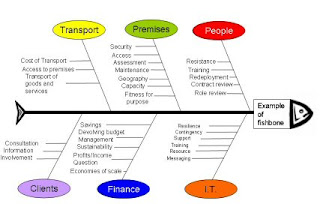01. Lessons Learnt From PMIT - Introduction

As with every other subject, the first thing that comes to mind is the question: What is this subject about? Therefore, the subject opens with the introduction to what is Project Management in Information Technology.
PMIT is "the application of knowledge, skills, tools and techniques to project activities to meet project requirements". In purely words it may be understood as the "discipline of planning, organizing and managing resources available to complete a project". And as you may already know, the project here is meant the temporary endeavor undertaken to create a unique product or service as a result".
The project itself to be successful, should accomplish some attributes such as: its unique purpose, resources, sponsor etc. Every project has three main goals that must be balanced when developing a project. The three goals are: 1. Scope, 2. Time and 3. Cost. Every project must meet this three goals. furthermore, it is very important that when we want to implement a project it must have supportive stakeholders - those who will be affected by the project.
Playing a very important role in the project development are the managers. Therefore project management should develop their skills by learning the nine project management knowledge areas which include: integration management, scope management, time management, cost management, quality management, human resource management, communication management, risk management and procurement management. These nine knowledge areas will be studied throughout the whole course in details.
But before going further, I think it would be important to know what makes a project to succeed? (note that the project results as successful when it meets its scope, time and cost goals and when it satisfies its sponsor).
So, what helps a project to succeed?
1. Executive support
2. User involvement
3. Experienced project management
4. Clear business objectives
5. Minimized scope
6. Standard software infrastructure etc.
Therefore project managers should be aware of this factors. They must always work closely with other project members, especially with the sponsor and the project team.
To fulfill this purpose they must further use their people skills, leadership skills, listening and understanding skills and so on.
To classify good managers, the Project Management Institute (PMI) provides Project Management Professional certificates - this is to verify that someone has documented sufficient project experience and education, and has demonstrated knowledge in the field of project management by passing a comprehensive examination.



Comments